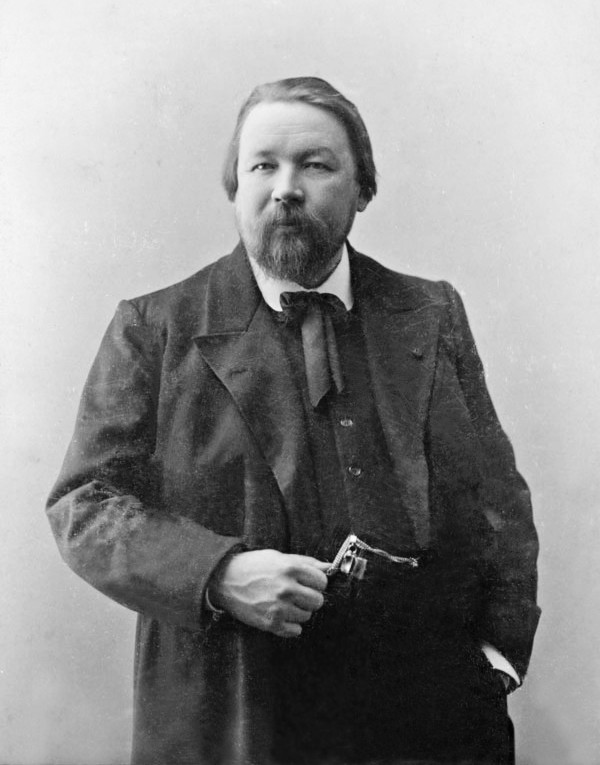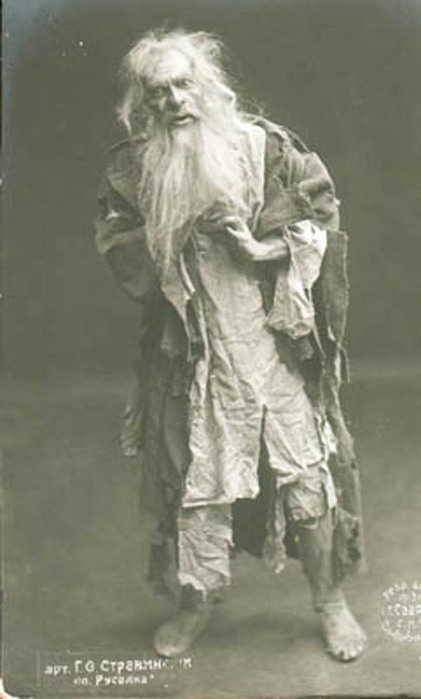|
The Maid Of Orleans (opera)
''The Maid of Orleans'' (russian: Орлеанская дева, Orleanskaja deva, link=no, Virgin of Orleans ) is an opera in 4 acts, 6 scenes, by Pyotr Ilyich Tchaikovsky. It was composed during 1878–1879 to a Russian libretto by the composer, based on several sources: Friedrich Schiller's ''The Maid of Orleans (play), The Maid of Orleans'' as translated by Vasily Zhukovsky; Jules Barbier's ''Jeanne d'Arc''; Auguste Mermet's libretto for his own 1876 opera; and Henri-Alexandre Wallon, Henri Wallon's biography of Joan of Arc. Dedicated to conductor Eduard Nápravník, this work represents the composer's closest approach to French grand opera, albeit in the Russian language, notably with its inclusion of a ballet in act 2. Performance history The world premiere was given on 25 February 1881 (13 February Old style and new style dates, O.S.) at the Mariinsky Theatre in Saint Petersburg, conducted by Eduard Nápravník. Notable subsequent performances were given on 28 July 1882 in Pr ... [...More Info...] [...Related Items...] OR: [Wikipedia] [Google] [Baidu] |
Pyotr Ilyich Tchaikovsky
Pyotr Ilyich Tchaikovsky , group=n ( ; 7 May 1840 – 6 November 1893) was a Russian composer of the Romantic period. He was the first Russian composer whose music would make a lasting impression internationally. He wrote some of the most popular concert and theatrical music in the current classical repertoire, including the ballets '' Swan Lake'' and ''The Nutcracker'', the ''1812 Overture'', his First Piano Concerto, Violin Concerto, the ''Romeo and Juliet'' Overture-Fantasy, several symphonies, and the opera ''Eugene Onegin''. Although musically precocious, Tchaikovsky was educated for a career as a civil servant as there was little opportunity for a musical career in Russia at the time and no system of public music education. When an opportunity for such an education arose, he entered the nascent Saint Petersburg Conservatory, from which he graduated in 1865. The formal Western-oriented teaching that he received there set him apart from composers of the contemporary nati ... [...More Info...] [...Related Items...] OR: [Wikipedia] [Google] [Baidu] |
Mikhail Ippolitov-Ivanov
Mikhail Mikhailovich Ippolitov-Ivanov (russian: Михаи́л Миха́йлович Ипполи́тов-Ива́нов; 28 January 1935) was a Russian and Soviet composer, conductor and teacher. His music ranged from the late-Romantic era into the 20th century era. Biography He was born in 1859 at Gatchina, near St. Petersburg, where his father was a mechanic employed at the palace. His birth name was Mikhail Mikhailovich Ivanov; later he added Ippolitov, his mother's maiden name, to distinguish himself from a composer and music critic with an identical name ( Mikhail Ivanov). He studied music at home and was a choirboy at the cathedral of St. Isaac, where he also had musical instruction, before entering the St. Petersburg Conservatory in 1875. In 1882 he completed his studies as a composition pupil of Rimsky-Korsakov, whose influence was to remain strong. Ippolitov-Ivanov's first appointment was to the position of director of the music academy and conductor of the orc ... [...More Info...] [...Related Items...] OR: [Wikipedia] [Google] [Baidu] |
Ippolit Pryanishnikov
IPPOLIT is an open-source chess program released by authors using pseudonyms, Yakov Petrovich Golyadkin, Igor Igorovich Igoronov, Roberto Pescatore, Yusuf Ralf Weisskopf, Ivan Skavinsky Skavar, and Decembrists. The program is a console application that communicates with a chess Graphical User Interface (GUI) via standard Universal Chess Interface protocol. IPPOLIT is a bitboard chess engine optimized for 64-bit architecture with native support for both 32-bit/64-bit Linux and Windows operating systems. With about 3100 ELO it is listed in TOP 50 strongest chess programs. Releases * IPPOLIT, released on May 2, 2009, was the first release of the series. It was split in multiple usenet messages. RobboLito released in September 2009, was the second installment of the IPPOLIT series. Endgame tablebaseRobboBasessupport was introduced. Igorrit released in January 2010, added Multi-core support, and was the third installment of the IPPOLIT series. IvanHoe released in January 2010, is ... [...More Info...] [...Related Items...] OR: [Wikipedia] [Google] [Baidu] |
Fyodor Stravinsky
Fyodor Ignatievich Stravinsky (russian: Фёдор Игнатьевич Страви́нский), , estate Novy Dvor (Aleksichi), Rechitsky Uyezd, Minsk Governorate ) was a Russian bass opera singer and actor. He was the father of Igor Stravinsky and the grandfather of Théodore Strawinsky and Soulima Stravinsky. Life and career His father Ignacy was a Catholic and came from a noble Polish family of Sulima- Strawiński; his mother, Alexandra Ivanovna Skorokhodova, was a daughter of a Russian small landowner. Fyodor was baptised in accordance with the Orthodox rite due to Imperial Law which stated that children born of mixed Catholic-Orthodox marriages had to be brought up in the Russian Orthodox faith.Igor Stravinsky, Robert Craft, Memories and Commentaries', University of California Press, 1981, p. 17 In 1869 he completed his education at the Nezhin Lyceum, where he sang in the church choir. He studied voice at the Saint Petersburg Conservatory from 1869–73. He later stu ... [...More Info...] [...Related Items...] OR: [Wikipedia] [Google] [Baidu] |
Baritone
A baritone is a type of classical male singing voice whose vocal range lies between the bass and the tenor voice-types. The term originates from the Greek (), meaning "heavy sounding". Composers typically write music for this voice in the range from the second F below middle C to the F above middle C (i.e. F2–F4) in choral music, and from the second A below middle C to the A above middle C (A2 to A4) in operatic music, but the range can extend at either end. Subtypes of baritone include the baryton-Martin baritone (light baritone), lyric baritone, ''Kavalierbariton'', Verdi baritone, dramatic baritone, ''baryton-noble'' baritone, and the bass-baritone. History The first use of the term "baritone" emerged as ''baritonans'', late in the 15th century, usually in French sacred polyphonic music. At this early stage it was frequently used as the lowest of the voices (including the bass), but in 17th-century Italy the term was all-encompassing and used to describe the averag ... [...More Info...] [...Related Items...] OR: [Wikipedia] [Google] [Baidu] |
Pope
The pope ( la, papa, from el, πάππας, translit=pappas, 'father'), also known as supreme pontiff ( or ), Roman pontiff () or sovereign pontiff, is the bishop of Rome (or historically the patriarch of Rome), head of the worldwide Catholic Church, and has also served as the head of state or sovereign of the Papal States and later the Vatican City State since the eighth century. From a Catholic viewpoint, the primacy of the bishop of Rome is largely derived from his role as the apostolic successor to Saint Peter, to whom primacy was conferred by Jesus, who gave Peter the Keys of Heaven and the powers of "binding and loosing", naming him as the "rock" upon which the Church would be built. The current pope is Francis, who was elected on 13 March 2013. While his office is called the papacy, the jurisdiction of the episcopal see is called the Holy See. It is the Holy See that is the sovereign entity by international law headquartered in the distinctively independent Vatic ... [...More Info...] [...Related Items...] OR: [Wikipedia] [Google] [Baidu] |
Vladimir Mayboroda
Vladimir may refer to: Names * Vladimir (name) for the Bulgarian, Croatian, Czech, Macedonian, Romanian, Russian, Serbian, Slovak and Slovenian spellings of a Slavic name * Uladzimir for the Belarusian version of the name * Volodymyr for the Ukrainian version of the name * Włodzimierz (given name) for the Polish version of the name * Valdemar for the Germanic version of the name * Wladimir for an alternative spelling of the name Places * Vladimir, Russia, a city in Russia * Vladimir Oblast, a federal subject of Russia * Vladimir-Suzdal, a medieval principality * Vladimir, Ulcinj, a village in Ulcinj Municipality, Montenegro * Vladimir, Gorj, a commune in Gorj County, Romania * Vladimir, a village in Goiești Commune, Dolj County, Romania * Vladimir (river), a tributary of the Gilort in Gorj County, Romania * Volodymyr (city), a city in Ukraine Religious leaders * Metropolitan Vladimir (other), multiple * Jovan Vladimir (d. 1016), ruler of Doclea and a saint of the S ... [...More Info...] [...Related Items...] OR: [Wikipedia] [Google] [Baidu] |
Bass (voice Type)
A bass is a type of classical male singing voice and has the lowest vocal range of all voice types. According to ''The New Grove Dictionary of Opera'', a bass is typically classified as having a vocal range extending from around the second E below middle C to the E above middle C (i.e., E2–E4).; ''The Oxford Dictionary of Music'' gives E2–E4/F4 Its tessitura, or comfortable range, is normally defined by the outermost lines of the bass clef. Categories of bass voices vary according to national style and classification system. Italians favour subdividing basses into the ''basso cantante'' (singing bass), ''basso buffo'' ("funny" bass), or the dramatic ''basso profondo'' (low bass). The American system identifies the bass-baritone, comic bass, lyric bass, and dramatic bass. The German ''Fach'' system offers further distinctions: Spielbass (Bassbuffo), Schwerer Spielbass (Schwerer Bassbuffo), Charakterbass (Bassbariton), and Seriöser Bass. These classification systems can ... [...More Info...] [...Related Items...] OR: [Wikipedia] [Google] [Baidu] |
Archbishop
In Christian denominations, an archbishop is a bishop of higher rank or office. In most cases, such as the Catholic Church, there are many archbishops who either have jurisdiction over an ecclesiastical province in addition to their own archdiocese ( with some exceptions), or are otherwise granted a titular archbishopric. In others, such as the Lutheran Church of Sweden and the Church of England, the title is borne by the leader of the denomination. Etymology The word archbishop () comes via the Latin ''archiepiscopus.'' This in turn comes from the Greek , which has as components the etymons -, meaning 'chief', , 'over', and , 'seer'. Early history The earliest appearance of neither the title nor the role can be traced. The title of "metropolitan" was apparently well known by the 4th century, when there are references in the canons of the First Council of Nicæa of 325 and Council of Antioch of 341, though the term seems to be used generally for all higher ranks of bishop ... [...More Info...] [...Related Items...] OR: [Wikipedia] [Google] [Baidu] |
Mikhail Vasilyev (tenor)
Mikhail Vasilyev may refer to: * Mikhail Vasilyev (explorer) Mikhail Nikolayevich Vasilyev (russian: Михаил Николаевич Васильев; 1770 – June 23, 1847) was a Russian explorer and vice admiral of the Imperial Russian Navy. He is reputed for having surveyed the then little-known coa ... (1770–1847), Russian explorer and vice admiral of the Imperial Russian Navy * Mikhail Vasilyev (handballer) (born 1961), Russian handball player {{hndis, Vasilyev, Mikhail ... [...More Info...] [...Related Items...] OR: [Wikipedia] [Google] [Baidu] |
Tenor
A tenor is a type of classical music, classical male singing human voice, voice whose vocal range lies between the countertenor and baritone voice types. It is the highest male chest voice type. The tenor's vocal range extends up to C5. The low extreme for tenors is widely defined to be B2, though some roles include an A2 (two As below middle C). At the highest extreme, some tenors can sing up to the second F above middle C (F5). The tenor voice type is generally divided into the ''leggero'' tenor, lyric tenor, spinto tenor, dramatic tenor, heldentenor, and tenor buffo or . History The name "tenor" derives from the Latin word ''wikt:teneo#Latin, tenere'', which means "to hold". As Fallows, Jander, Forbes, Steane, Harris and Waldman note in the "Tenor" article at ''Grove Music Online'': In polyphony between about 1250 and 1500, the [tenor was the] structurally fundamental (or 'holding') voice, vocal or instrumental; by the 15th century it came to signify the male voice that ... [...More Info...] [...Related Items...] OR: [Wikipedia] [Google] [Baidu] |
.jpg)




